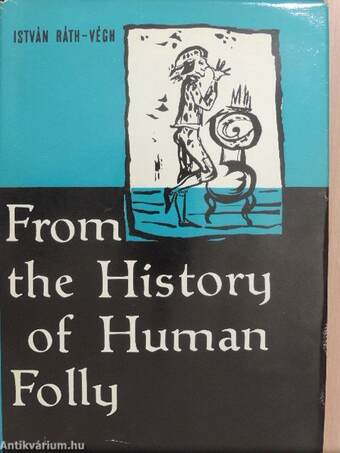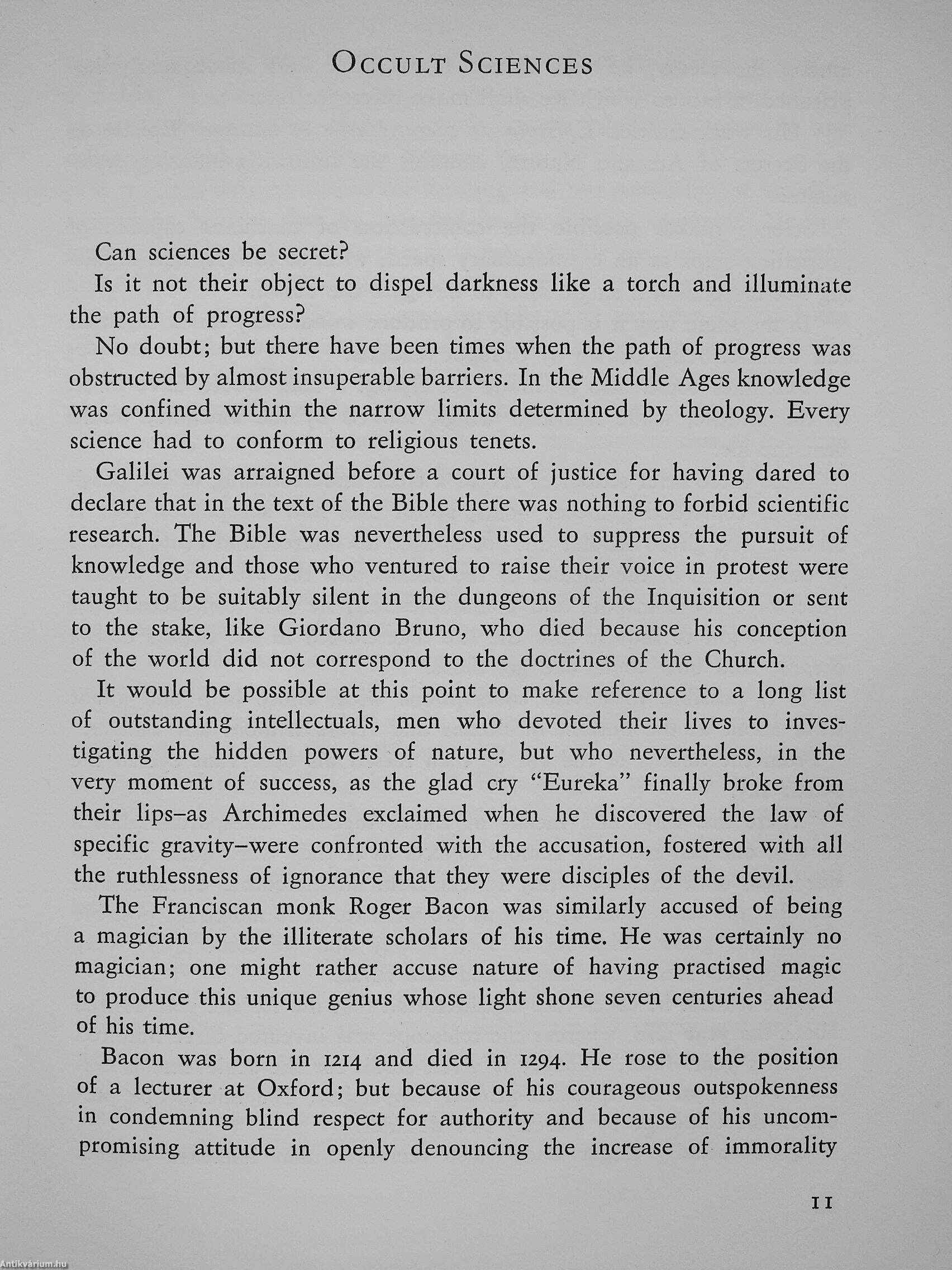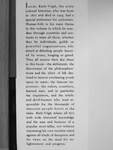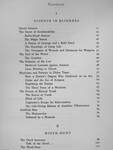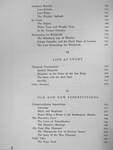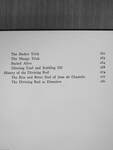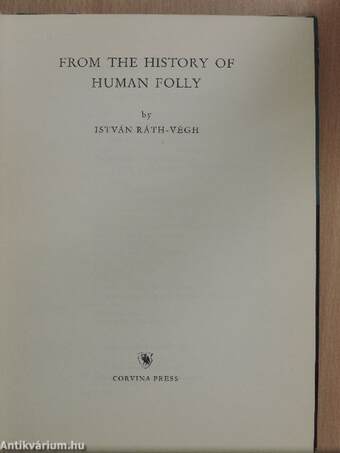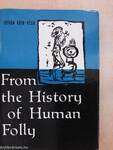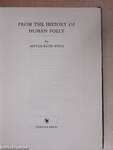1.117.562
kiadvánnyal nyújtjuk Magyarország legnagyobb antikvár könyv-kínálatát
From the History of Human Folly
| Kiadó: | Corvina Press |
|---|---|
| Kiadás helye: | Budapest |
| Kiadás éve: | |
| Kötés típusa: | Vászon |
| Oldalszám: | 288 oldal |
| Sorozatcím: | |
| Kötetszám: | |
| Nyelv: | Angol |
| Méret: | 21 cm x 15 cm |
| ISBN: | |
naponta értesítjük a beérkező friss
kiadványokról
naponta értesítjük a beérkező friss
kiadványokról
Előszó
TovábbFülszöveg
István Ráth-Végh, the witty
i
cultural historian, who was born
in 1870 and died in 1959, had a
special preference for curiosities.
Human folly is his main theme
in this volume in which he wan-
ders through countries and cen-
turies to trace all those, whether
they be individuals, guilds or
powerful organizations, who
aimed at deluding people haunt-
ed by worry, longing or greed.
They all receive their due share
in this book—the alchimists; the
discoverers of the philosophers'
stone and the elixir of life des-
tined to bestow everlasting youth
upon its users; the famous im-
postors; the rulers, courtiers,
learned men, and in particular
the inquisitors, and the witch-
and devil-hunters who were re-
sponsible for the thousands of
innocent people burnt at the
stake. Ráth-Végh relates all this
with wide historical knowledge
ahd the ease and humour of a
popular story-teller, not without
expressing his own resolute stand
against all kinds of deception and... Tovább
Fülszöveg
István Ráth-Végh, the witty
i
cultural historian, who was born
in 1870 and died in 1959, had a
special preference for curiosities.
Human folly is his main theme
in this volume in which he wan-
ders through countries and cen-
turies to trace all those, whether
they be individuals, guilds or
powerful organizations, who
aimed at deluding people haunt-
ed by worry, longing or greed.
They all receive their due share
in this book—the alchimists; the
discoverers of the philosophers'
stone and the elixir of life des-
tined to bestow everlasting youth
upon its users; the famous im-
postors; the rulers, courtiers,
learned men, and in particular
the inquisitors, and the witch-
and devil-hunters who were re-
sponsible for the thousands of
innocent people burnt at the
stake. Ráth-Végh relates all this
with wide historical knowledge
ahd the ease and humour of a
popular story-teller, not without
expressing his own resolute stand
against all kinds of deception and
his views on the need for en-
lightenment and progress. Vissza


